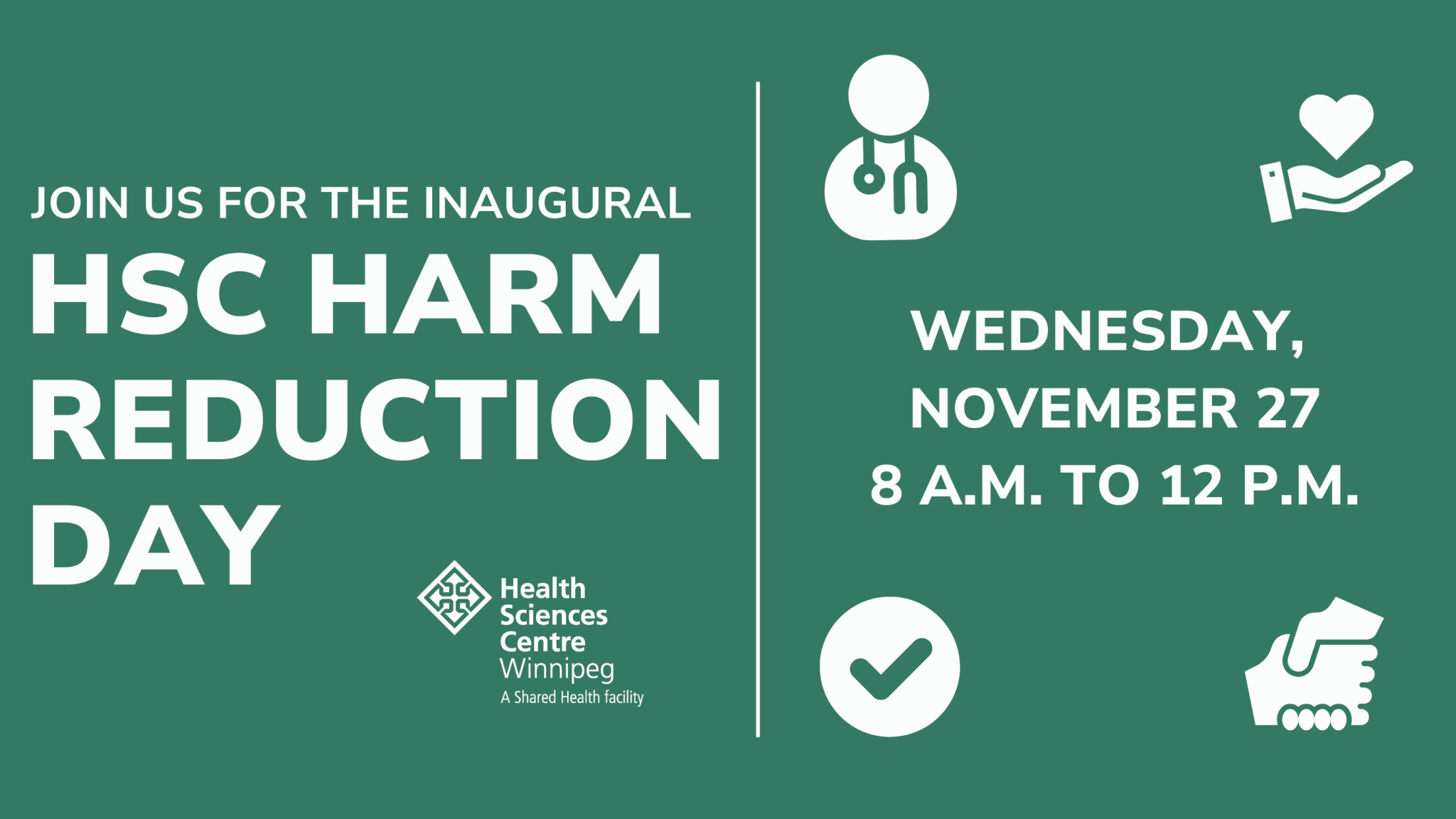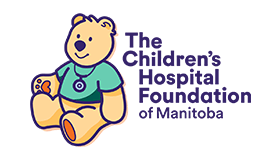Harm Reduction Day
Wednesday, November 27, 2024
8:00 am – 12:00 pm

Harm reduction is an important, yet often misunderstood health care approach to reduce the health and social harms associated with addiction and substance use, and other behaviours.
Join us on Nov. 27 from 8 a.m. to 12 p.m. for the inaugural HSC Harm Reduction Day.
Harm Reduction is an evidence-based, client-centred approach which provides individuals with a choice of how they will minimize harms through non-judgemental and non-coercive strategies in order to enhance skills and knowledge to live safer and healthier lives. It seeks to reduce the health and social harms associated with addiction and substance use and other behaviours without necessarily requiring people from abstaining or stopping.
Harm reduction acknowledges that many individuals coping with addiction and problematic substance use may not be in a position to remain abstinent from their substance of choice. The harm reduction approach provides an option for users to engage with peers, medical and social services by meeting them where they are at. This approach allows for a health-oriented response to substance use, and it has been proven that those who engage in harm reduction services are more likely to engage in ongoing treatment as a result of accessing these services.
Other harm reduction initiatives have also reduced blood borne illnesses such as HIV/AIDS and Hepatitis C, and have decreased the rates of deaths due to drug overdoses.
During our first HSC Harm Reduction Day we’ll discuss this vital subject and hear from speakers with professional and lived experience with substance use and addiction recovery. Further details will be shared in the coming weeks.
Speakers:
Margaret Bryans
Margaret Bryans has been a nurse for the last 18 years and works as a Harm Reduction Consultant living and working on Treaty 1 Territory. She has spent the last 25 years in the healthcare field working to build and promote harm reduction practice in Manitoba.
From managed alcohol and safe supply, to Indigenous-led sexual health care, to perinatal care for people who use drugs, to safer consumption, she has and continues to work with people who use drugs to develop meaningful pathways into care. She loves a pragmatic and loving problem-solving approach that allows healthcare providers to deliver meaningful and healing care to the people; solutions that maximize exceptional clinical care and open doorways to that care.
She loves people who use drugs and is always up for challenging existing models to move towards transformational healthcare that is led and loved by the people who need it the most. She is committed to unsettling her healthcare practice by challenging her own ideas and approaches and dedicating her work to building on models that are led by Indigenous communities and people who use drugs. Margaret is queer and lives with her daughter and two very bad dogs. She was really fun in the 90’s and is now just an average amount of fun.
Presentation goals:
- To Build a common understanding of healing centered harm reduction and how that model can be used in an acute care setting.
- Orient staff to opportunities to improve care and outcomes for patients who use drugs and alcohol.
- To explore and imagine what can support staff agency and safety in the context of patients who present to care under the influence.
- To create opportunities for innovation in acute care harm reduction
Laura Lapointe
Laura has had many interactions with the healthcare system as a person with lived experience with mental health and addictions. These experiences are the reasons why she joined the Shared Health Patient and Family Advisor Network. “I would like to offer my experiences and insights in a way to improve services for mental health and addictions by drawing light to those areas where people may be falling through the cracks or suffering unnecessarily. I would like others out there living with mental health and addictions to know they are not alone and offer hope to others in similar situations. I want to challenge stigma by using my voice and help to do my part in improving the system so more people can be supported in the most effective way with improved outcomes.”
Laura is definitely doing her part to make change. She began her involvement by participating with the Perspectives Provincial Mental Health Advisory Network where she attended round table meetings and discussed topics of significance to the system and provided feedback on projects in progress. She has also been involved with the VIRGO Planning and Evaluation consultants by providing input to improve access and coordination of mental health and addictions services in Manitoba and has been selected again to participate with the VIRGO Consultant Group this fall to look at Community Mental Health and Addiction Services.
Since she has been involved with Shared Health’s Patient and Family Advisor Network, she has had the opportunity to share her experiences as a person with lived experience with a history of addictions at the launch for Manitoba’s Mental Health and Addictions Awareness Week that was held at the legislative building in November 2023 and more recently, at the University of Manitoba Rady Faculty of Health Sciences, speaking virtually to first year students from the various health programs and as of this spring, has become a primary care advisor for Shared Health.
In addition to all of this, Laura works as a Mental Health Rehab Worker and a nationally Certified Peer Supporter at Health Sciences Centre working with adults in the six adult in-patient Psych Units including Forensics and Detox.
During her presentation Laura will discuss compassion, challenging stigmas, experiences in healthcare and recovery journeys.



